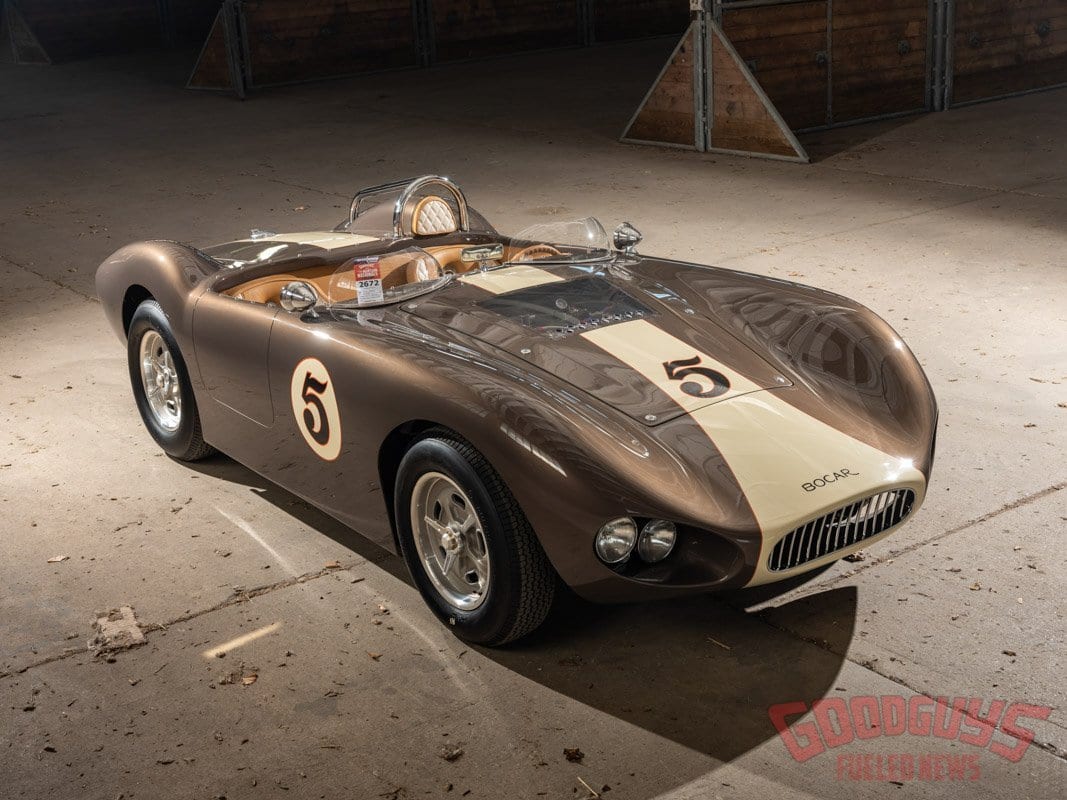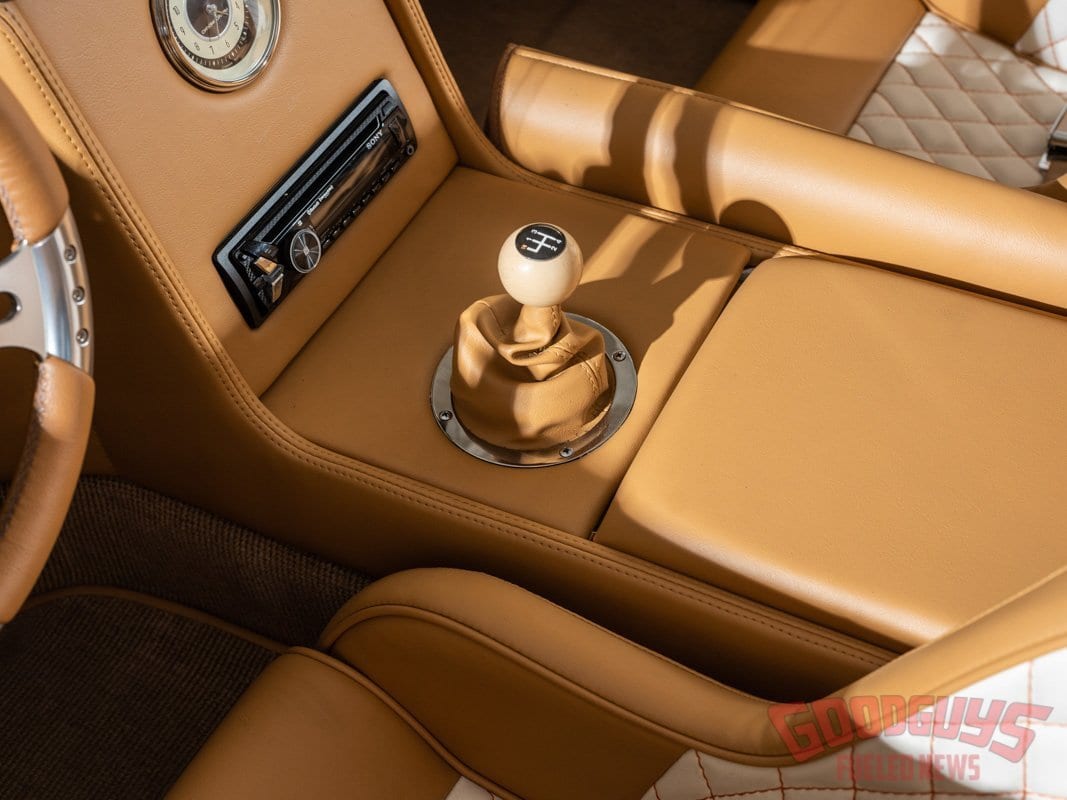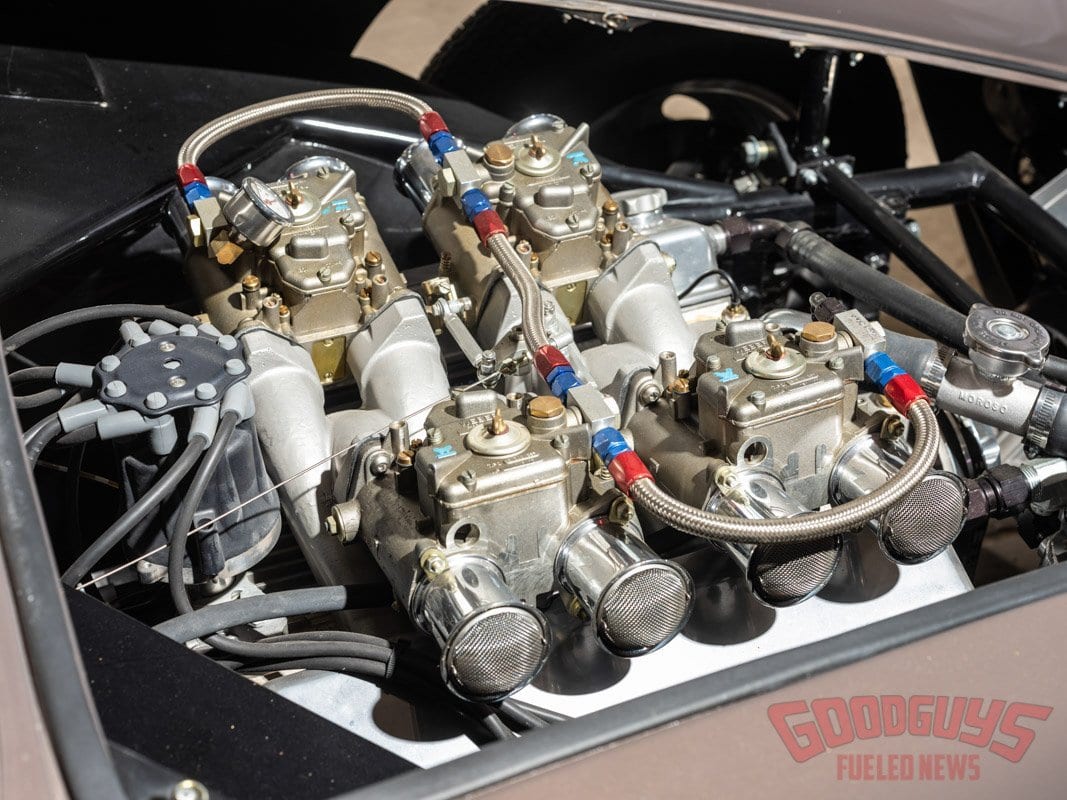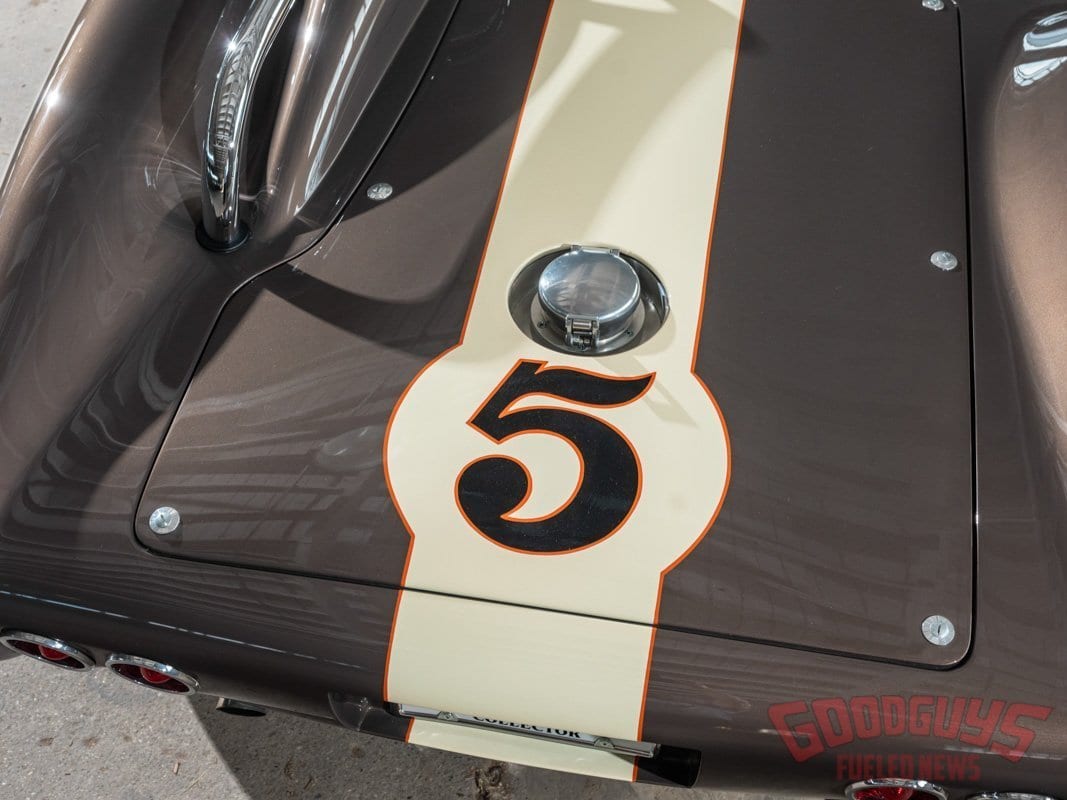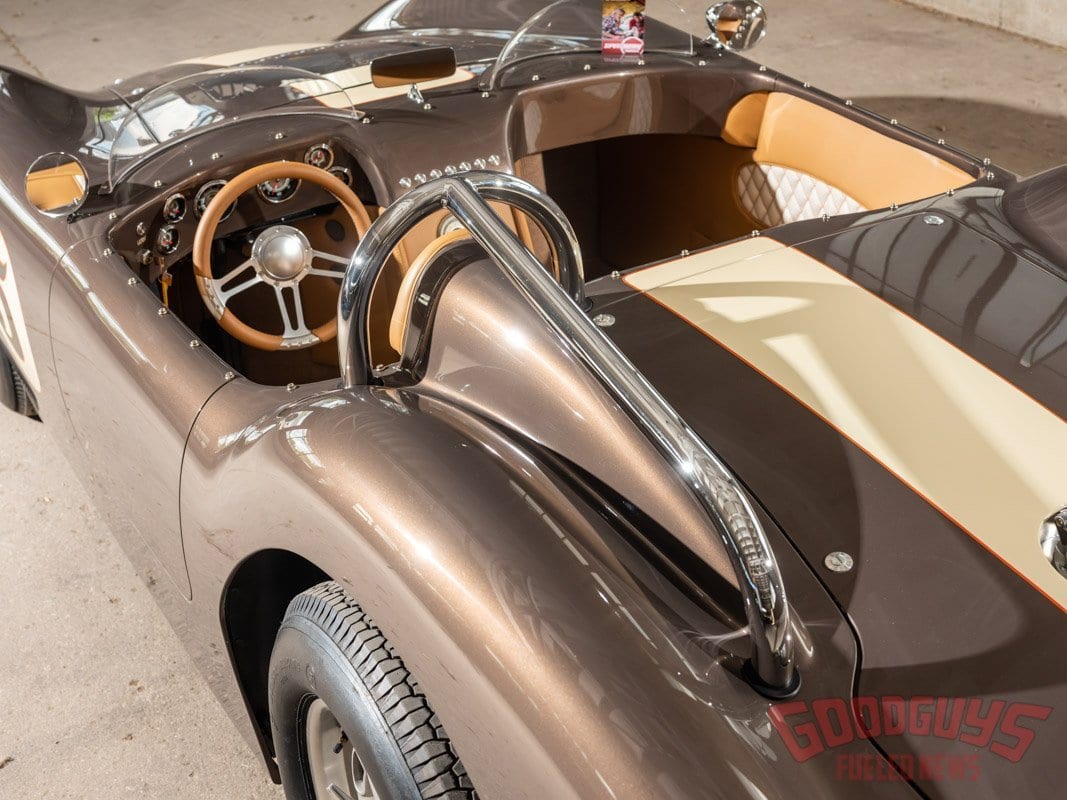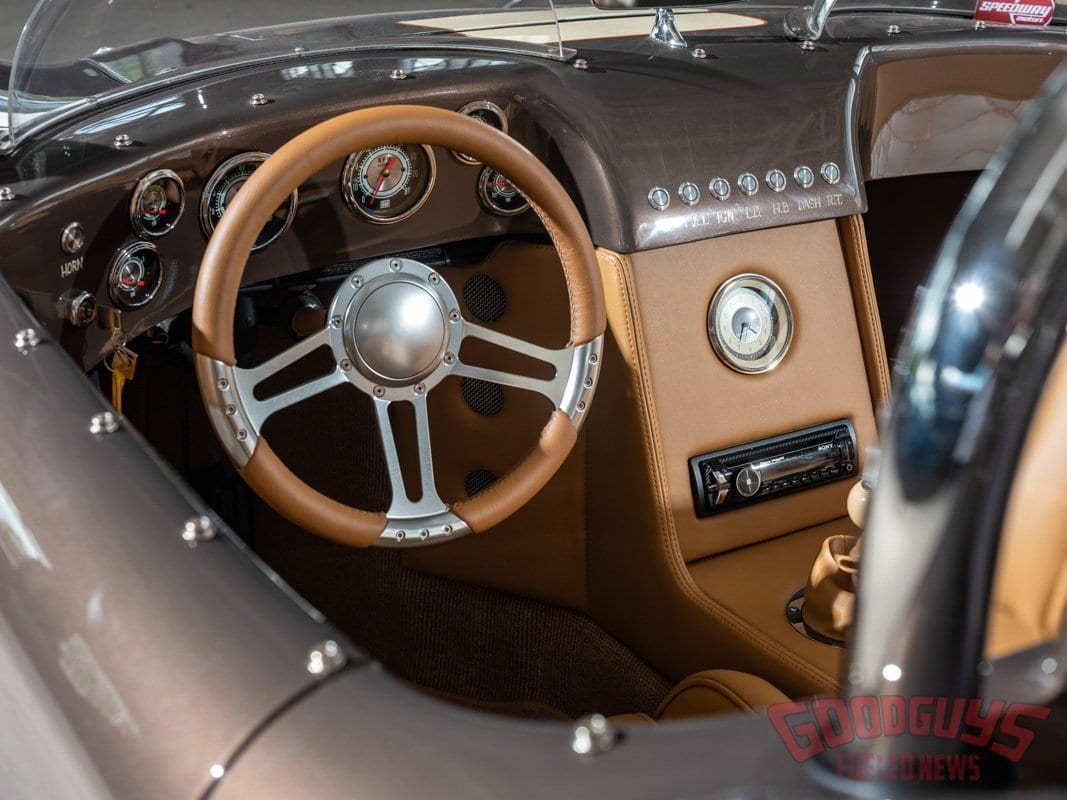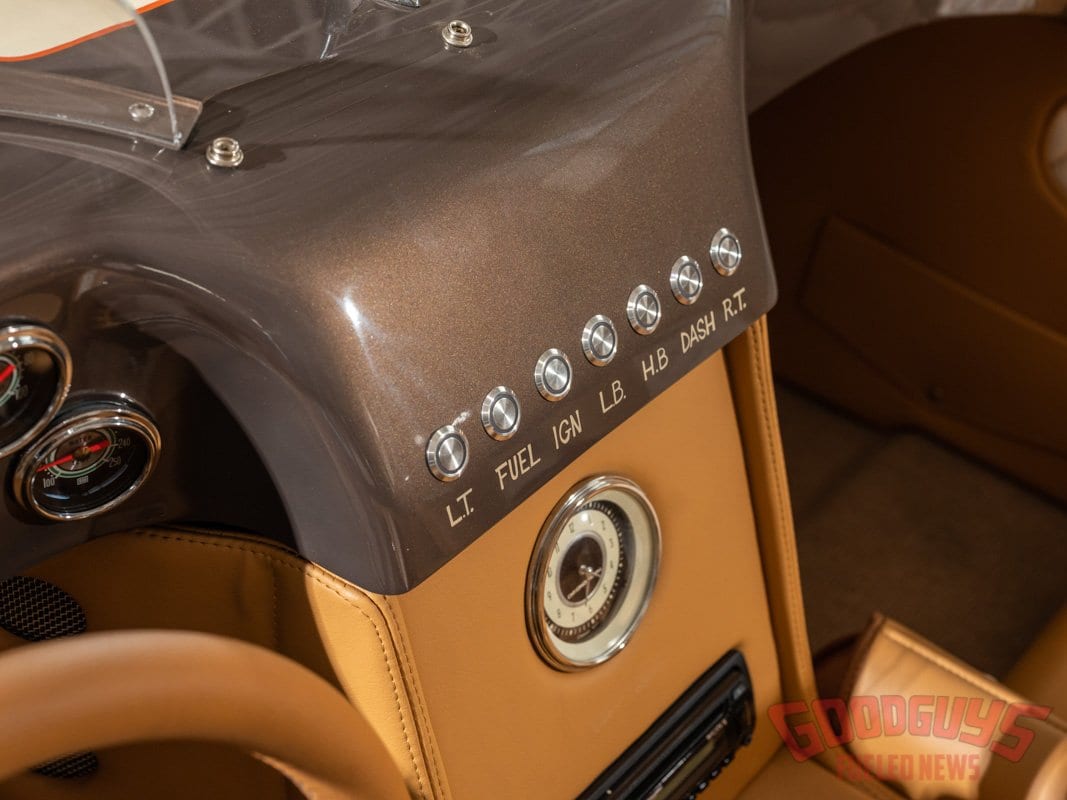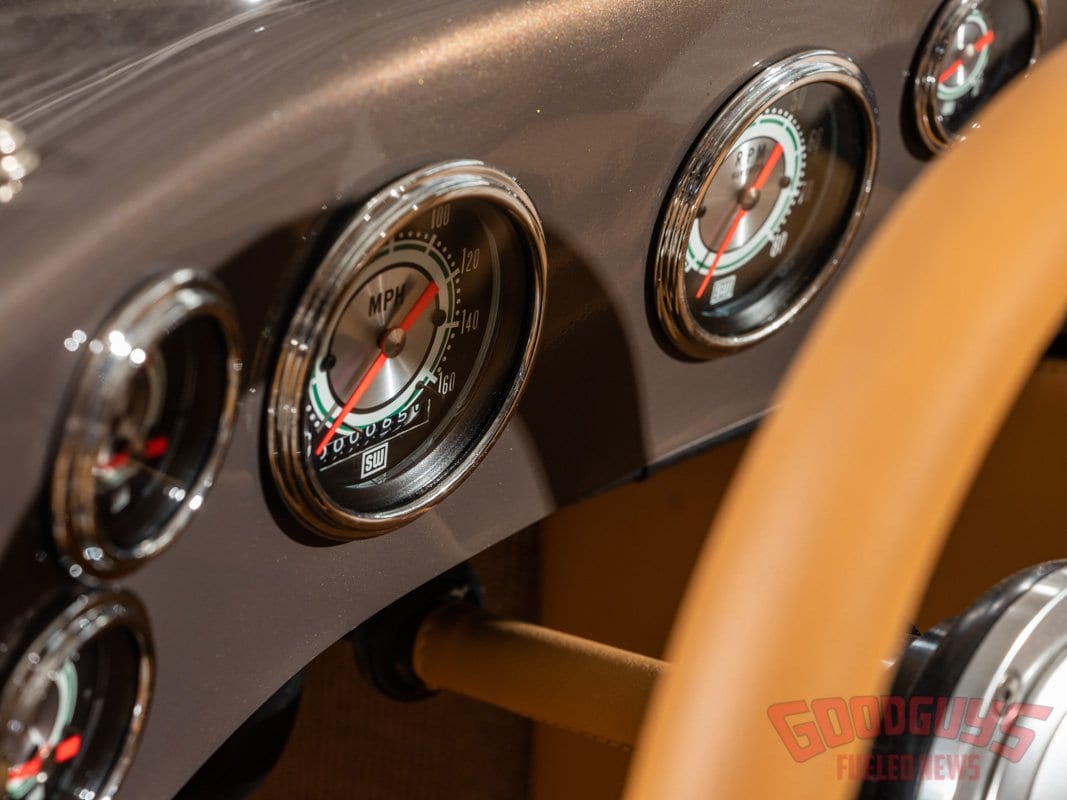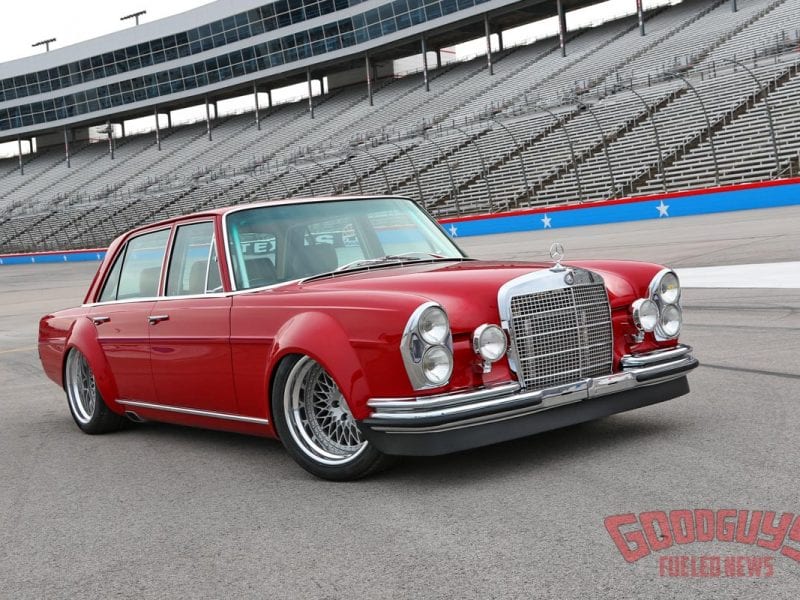Doug Karon’s 1959 Bocar XP5
If you’ve never heard of a Bocar, you’re not alone. The fiberglass sports car developed by Bob Carnes of Lakewood, Colorado, was built in extremely limited numbers in the late-’50s and early-’60s. The XP-5s were the first true “production” models, though a mere 15 were built. Most employed Volkswagen front suspensions and 283c.i. Corvette V8 power.
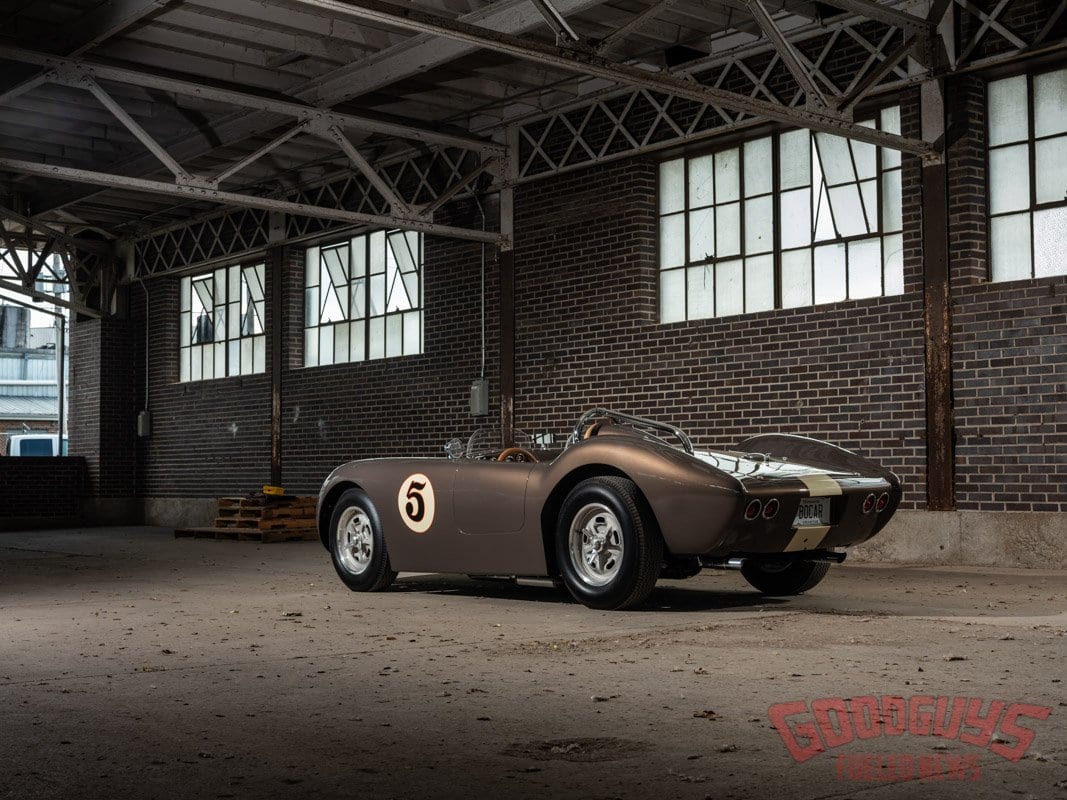
The combination of a lightweight body, short wheelbase, and powerful engine was both potent and scary. “They went like crazy in a straight line, but they didn’t stop, and they didn’t turn very well,” says Doug Karon, an enthusiast and expert who has restored four factory Bocars. Doug noted that the Bocars came out during a “golden era” for sports cars, where cottage-industry specials like the Bocar and grassroots enthusiasts could still compete against European Goliaths. A Bocar XP-5 raced by Art Huttinger at Daytona in January 1960 placed second only to a D-Type Jaguar driven by Ed Rahal.
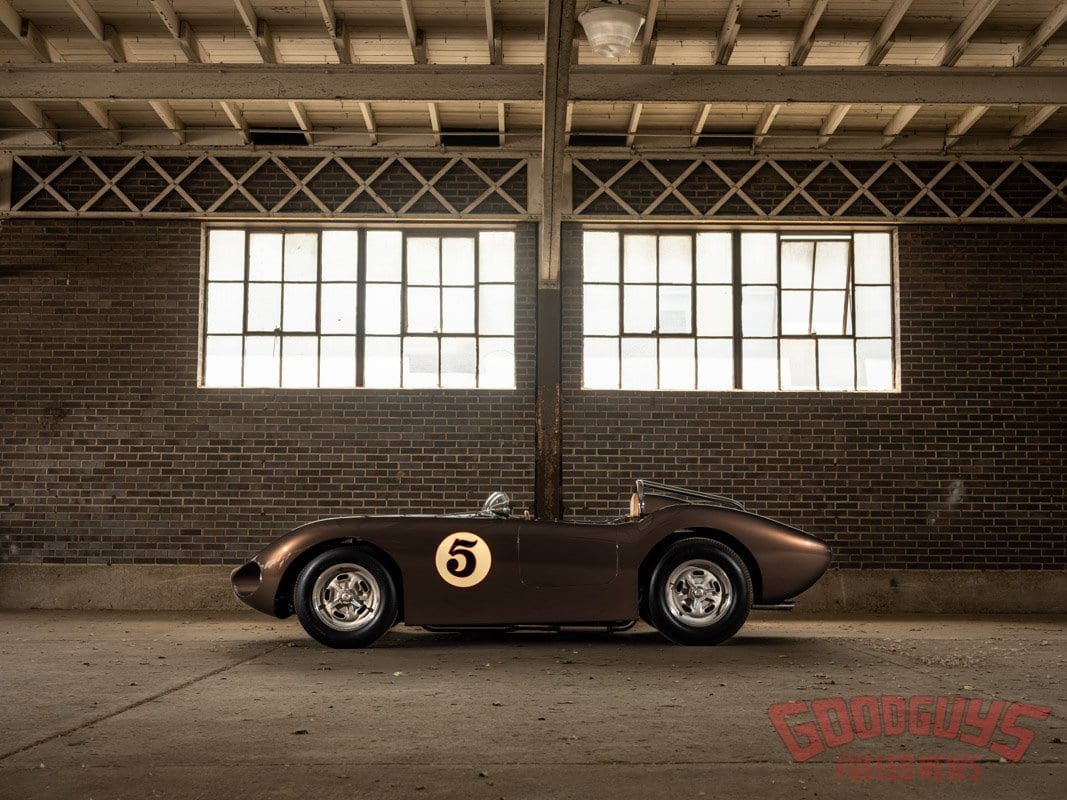
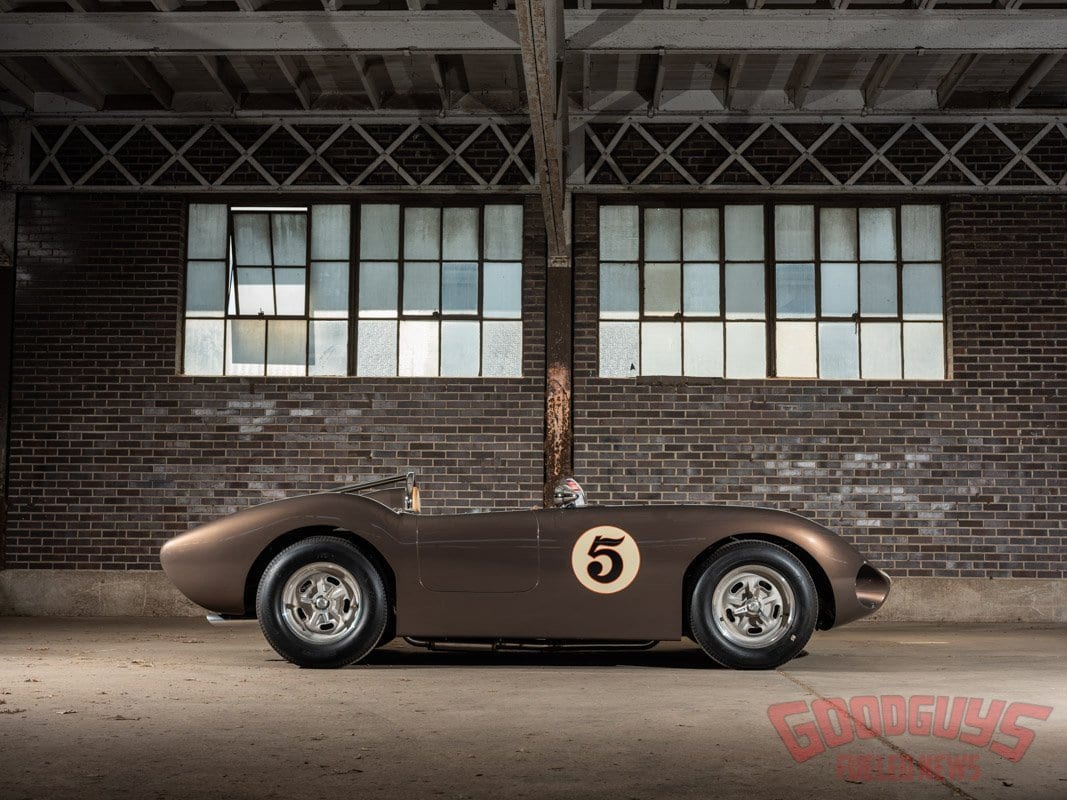
In the course of his Bocar restoration work, Doug built two “continuation” bodies using molds from originals. This bronze-hued continuation Bocar was crafted over the course of about seven years using one of those new bodies. Doug said he wanted to build a car true to the original Bocar spirit, but with a bit more engineering savvy to make it a better all-around performer.
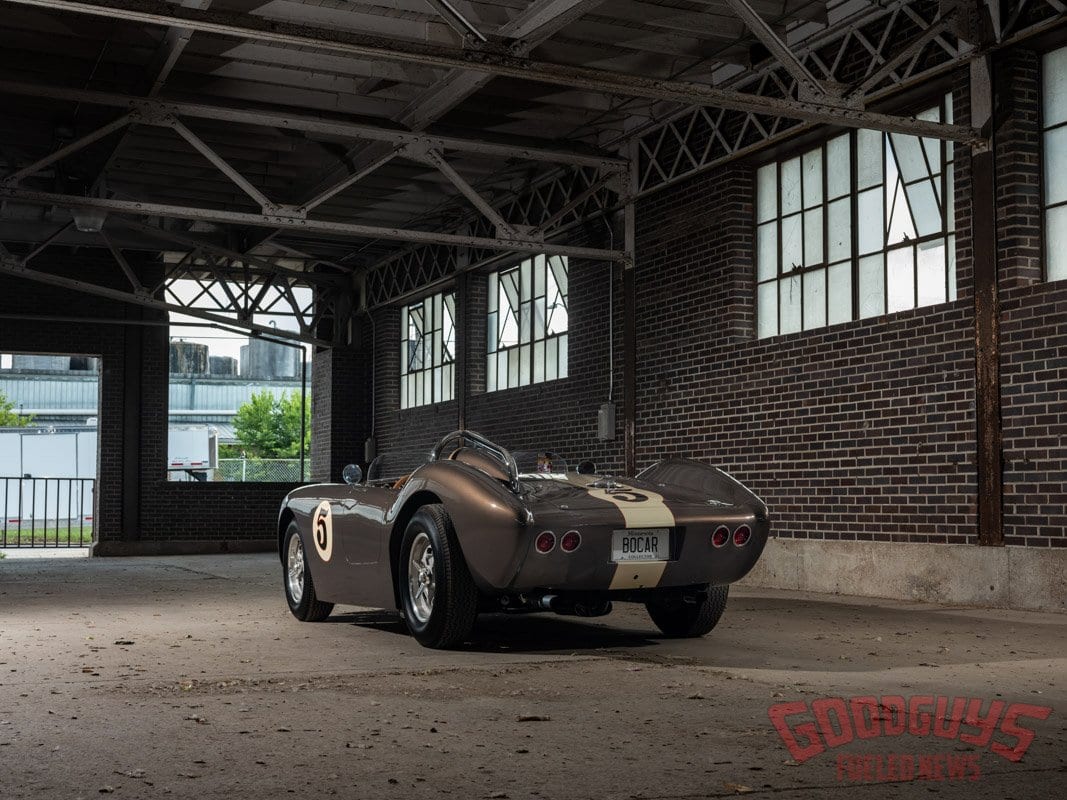
DRE Race Cars was tasked with building the custom frame using a Mustang II-style adjustable coil-over front suspension and a Jaguar independent rear suspension. Wilwood four-piston front disc brakes and inboard-mounted rears provided ample stopping power, while 16-inch Halibrand knock-off wheels and Dunlop tires lent period style and performance.
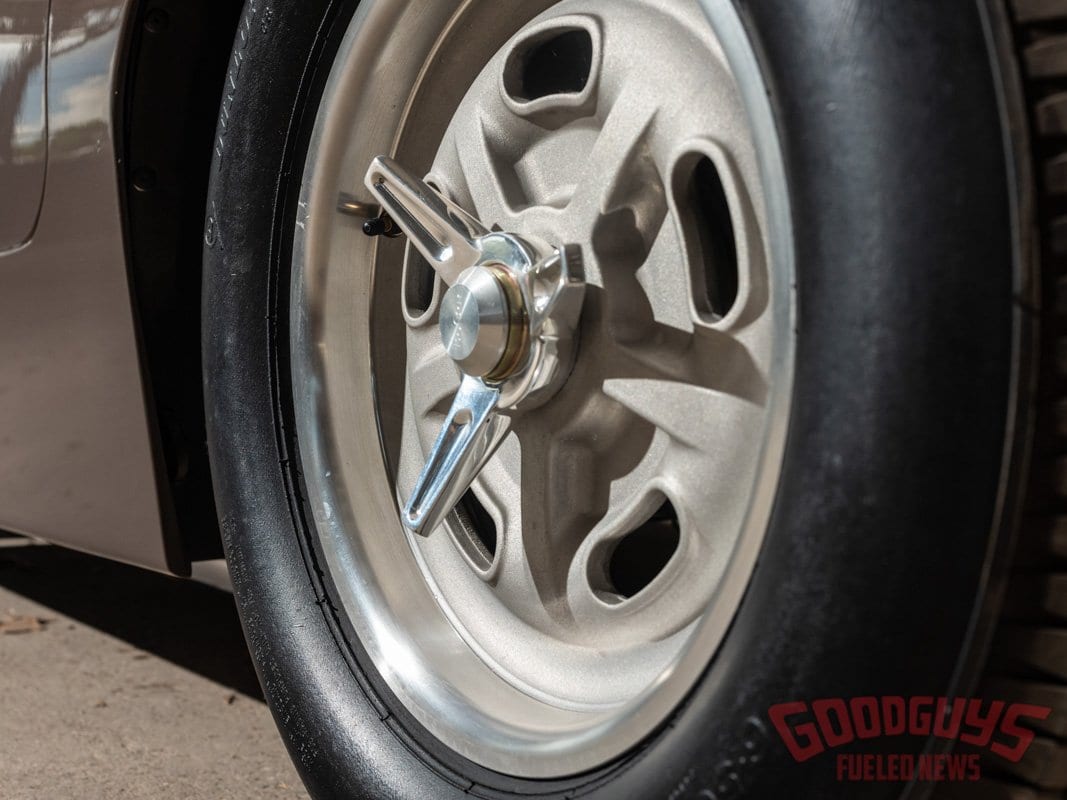
Like original Bocars, this one has small-block Chevy power, but the 383c.i. displacement and Weber carbs from Inglese on a cross-ram intake make it much more potent. With aluminum heads and MSD ignition, it’s good for 510hp, which is sent through a race-prepped Super T10 four-speed.
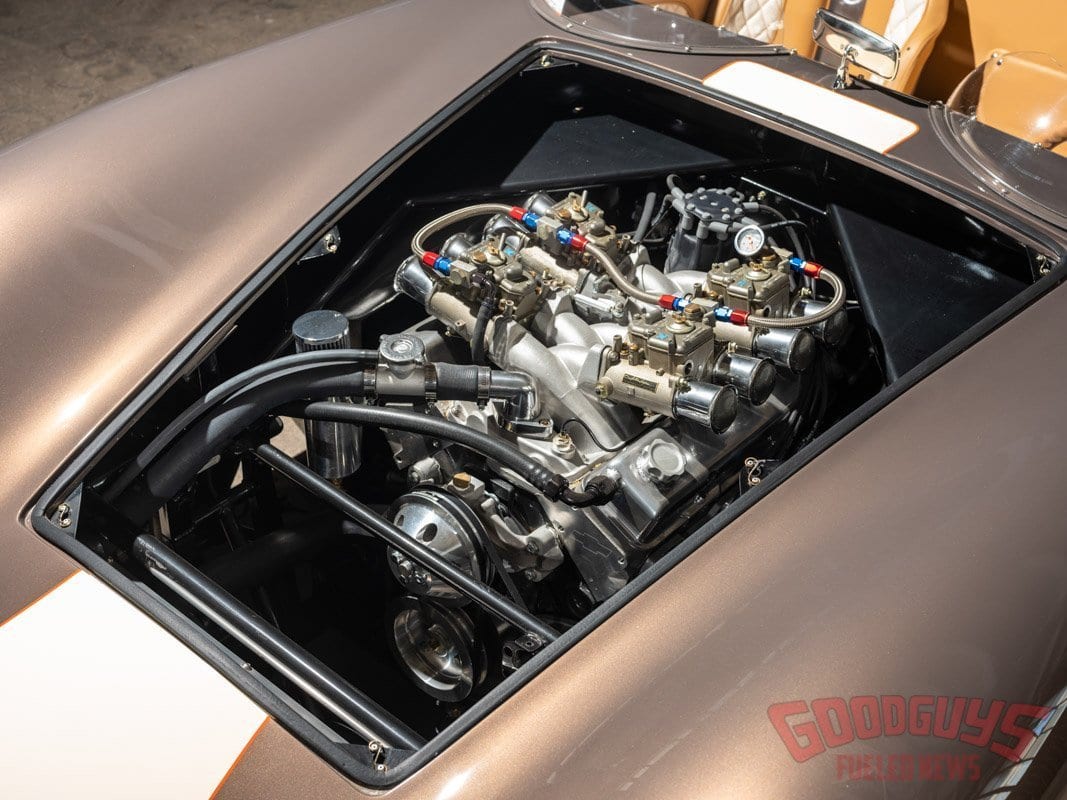
The fiberglass body was turned over to the team of Vescio’s Customizing and Restoration, where it was meticulously massaged and prepped for its bronze metallic Valspar finish with tan and orange competition striping. The minimal trim includes a small fabricated and plated aluminum grille, custom roll bar, and race-flavored rearview mirrors aside the small windscreens.
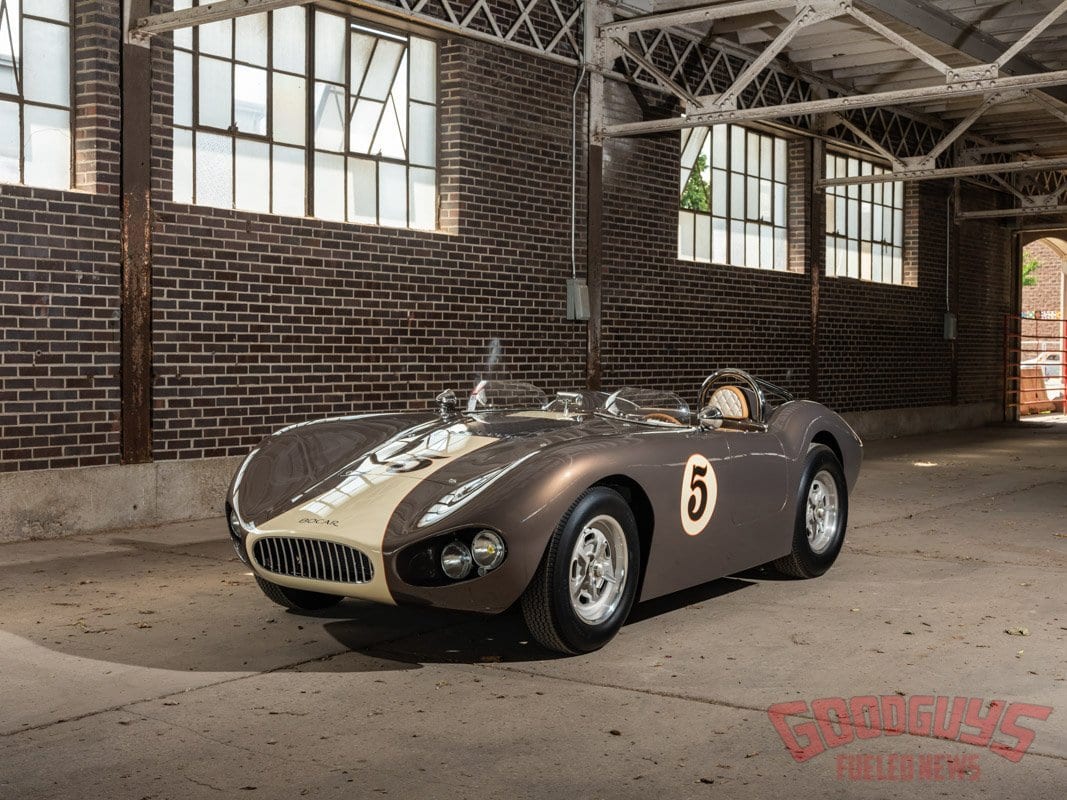
The two-seat cockpit is nicer than original competition versions, but still pretty fundamental. Hot Rod Interiors by Glen Kramer in Glendale, Arizona, stitched the two-tone vinyl over race seats using a diamond-stitch pattern, while Doug Rippie wired the Stewart-Warner gauges and Sony stereo. A custom steering wheel and Hurst shifter provide driver control.
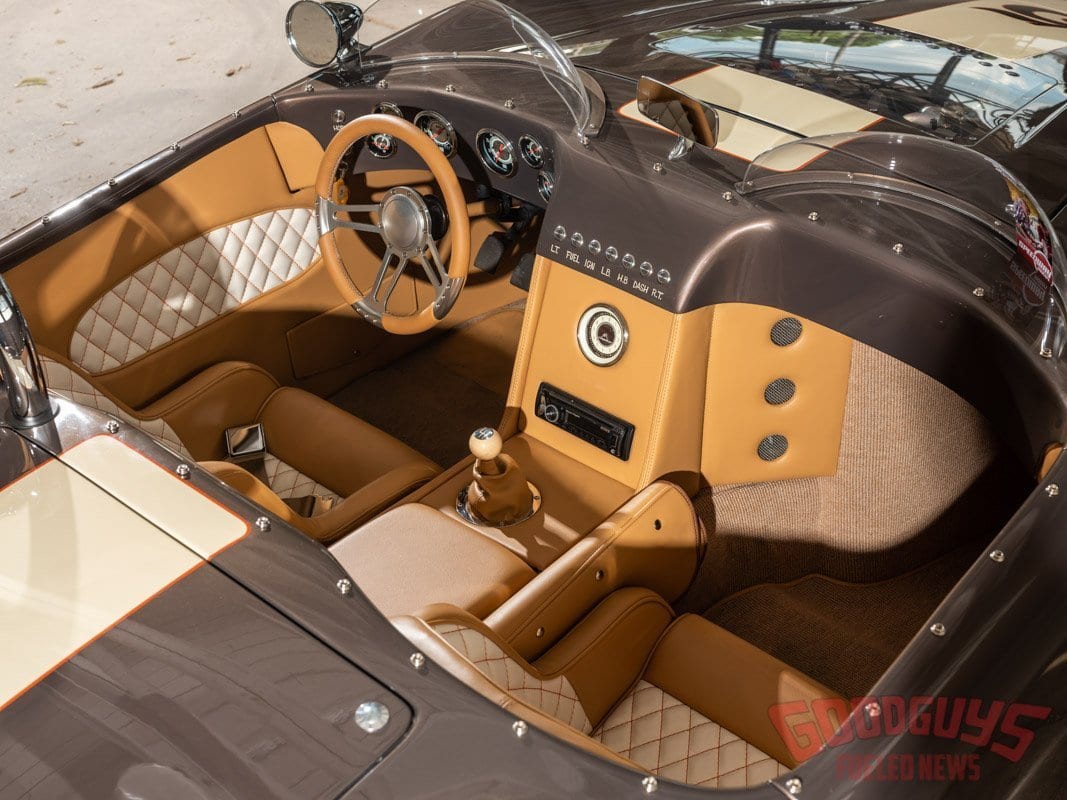
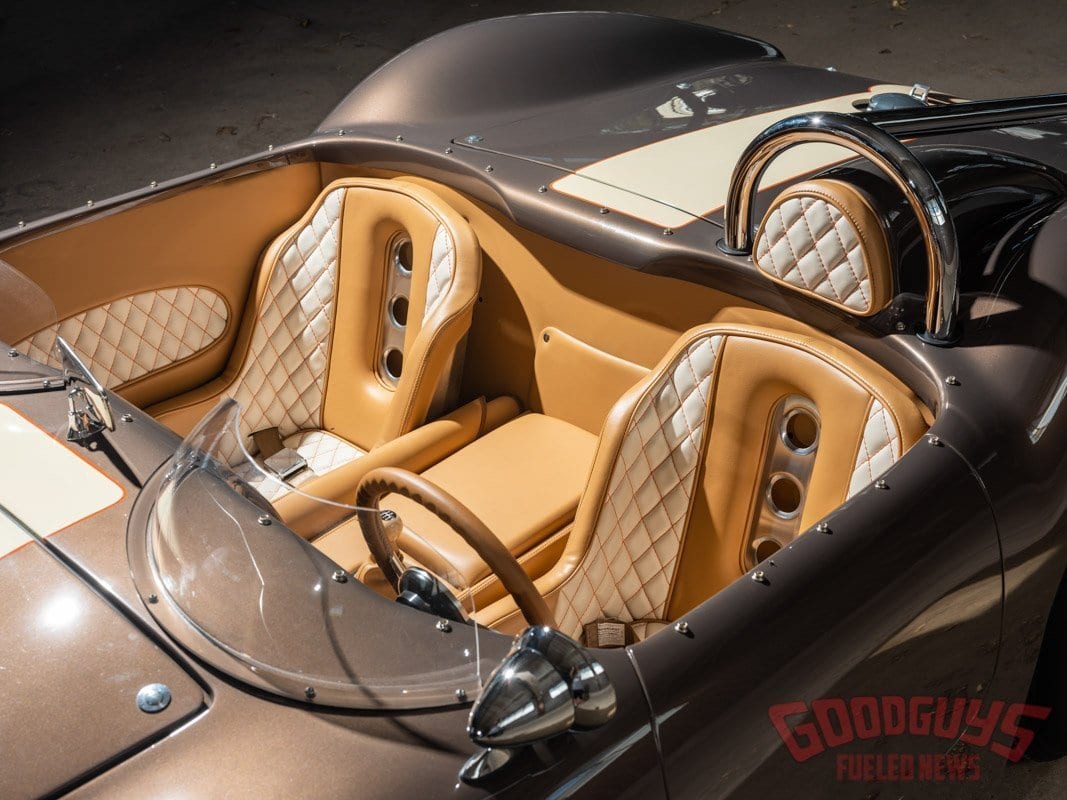
Finished last year, Doug’s Bocar boasts an enviable combination of 1960s sports-car styling and enough updated engineering to make it an enjoyable performer without being too refined, modern, or sterile. It’s a great tribute to the do-it-yourself ingenuity that helped American enthusiasts take on the sports car world.
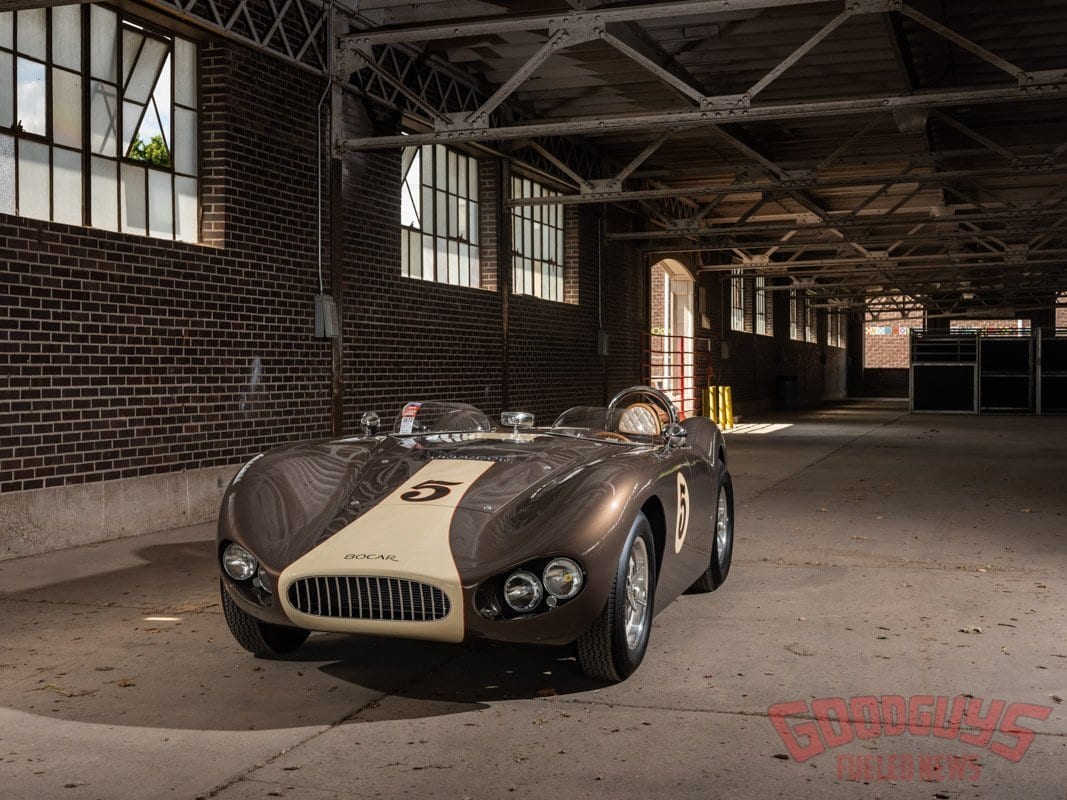
Photos by John Jackson

